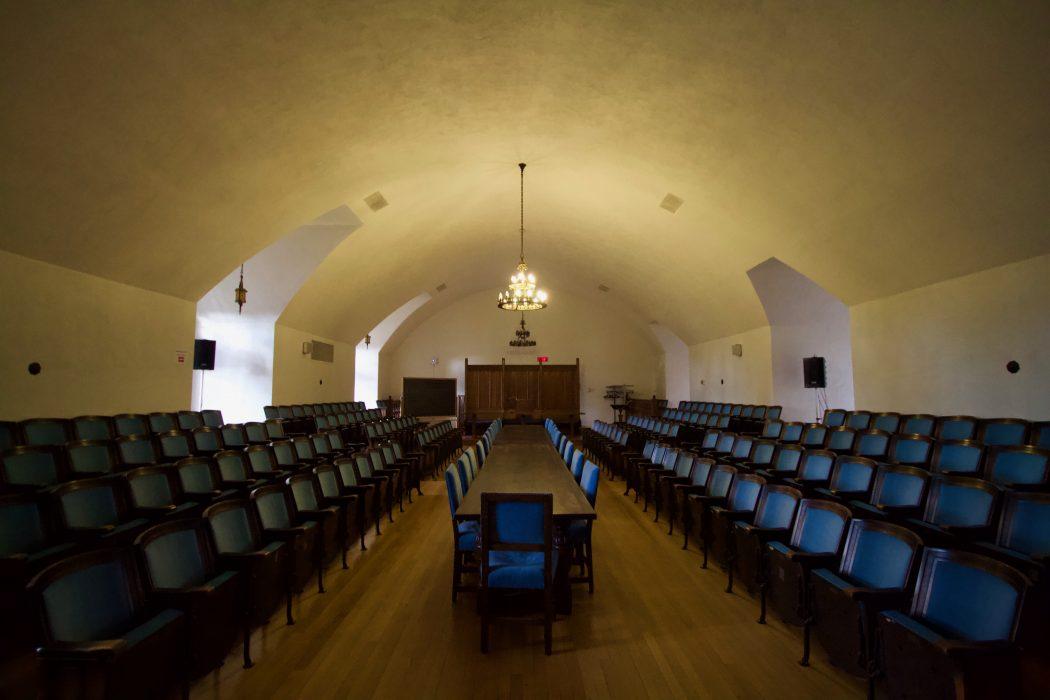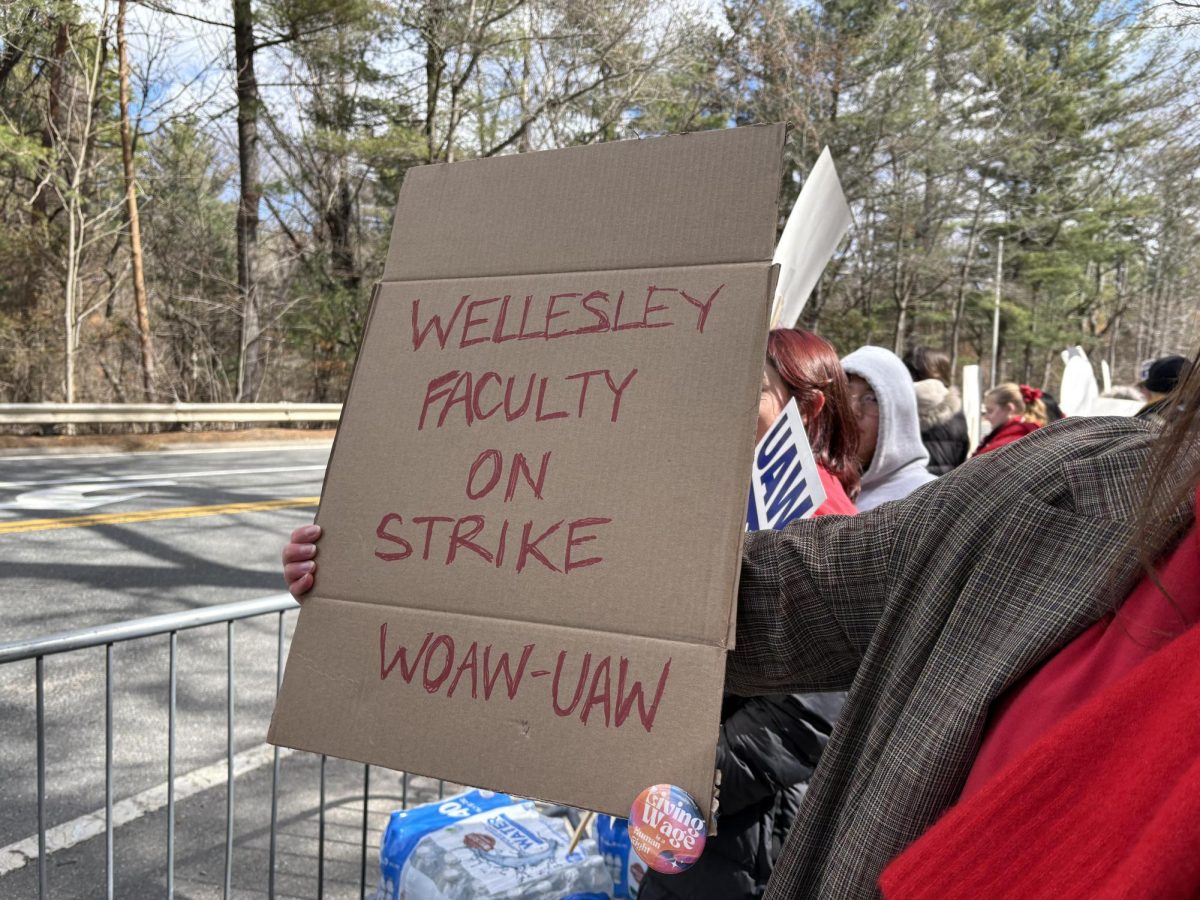Across the country, turnout for the 2018 midterm elections surged; Americans cast their ballots at the highest rate for a midterm election since 1914. Wellesley students followed suit, with 52.3 percent of eligible Wellesley students voting in the midterms, up 35.9 percent since the 2014 midterms, according to the Institute for Democracy and Higher Education. However, questions over whether this number is high enough have prompted the birth of #WellesleyVotes.
Avery Restrepo ’20, Committee for Political and Legislative Awareness (CPLA) chair, hopes that the #WellesleyVotes initiative increases civic engagement and political involvement and identifies topics of interest for students that are not being widely discussed on campus.
“I do believe that politics affects everyone, but sometimes the things that affect you aren’t the things that everyone else is talking about,” Restrepo said. “So, I think [#WellesleyVotes] could also be an opportunity to talk about lesser-discussed topics that are affecting people.”
According to an email sent out by College President Paula Johnson on Feb. 19, #WellesleyVotes is a nonpartisan initiative. Its aim is to remind the community of its shared core values despite internal political differences and to increase civic participation, specifically by voting. The campaign coincides with several milestones, including a highly contested 2020 presidential election, the 100th anniversary of the ratification of the 19th Amendment giving women the right to vote and the 25th anniversary of the United Nations Fourth World Congress on Women in Beijing. Johnson believes that despite immense progress on women’s rights, we must “rededicate ourselves to the unfinished business of women’s equality and of building a more perfect, more inclusive, and more equitable union” through civic engagement.
CPLA is the only student group officially part of #WellesleyVotes, although many organizations have co-sponsored affiliated events, according to Restrepo. Because CPLA’s mission aligns so well with the goals of #WellesleyVotes, much of their work will remain the same — like past years, they tabled for voter registration before the 2020 primaries — but the main difference is the extent of administrative support for student initiatives. For example, class deans joined CPLA members as they tabled. Although most CPLA programming affiliated with #WellesleyVotes will take place in the fall, Restrepo stressed that student organizations have put on amazing politically-affiliated events in the past without administrative support.
“We have so many cool groups on campus that do so many cool events, and they have so much planning ability and time to do that kind of stuff, and I think it’s a cool opportunity to see what can happen when we work collaboratively with a specific goal in mind, which I don’t think has happened in a while to the scale that this is … For student orgs that want to opt into [#WellesleyVotes], I think it’s a cool opportunity,” they said.
The campaign will take several approaches, through a combination of academic, activist and voter registration initiatives to reach the goal of greater civic engagement. The first official event affiliated with #WellesleyVotes occurred on Feb. 20. Held at Harambee House, “The Cypher: Electoral Politics: Young, Black, and Undecided” was a discussion co-sponsored by many organizations on and off-campus, including CPLA, Ethos, Wellesley for Caribbean Development, blackOUT, Xi Tau Chapter of Delta Sigma Theta Sorority and more. Panelists ranged from professionals to Wellesley students, who stressed their desire for a 2020 presidential candidate who is truly committed to systemic change, hoping that their choice will not have to be “the lesser of two evils.”
Prior to the inception of #WellesleyVotes, Tracey Cameron, assistant dean of intercultural education, was already planning an event about the Black vote because the theme of Black History Month was the Black vote. She was glad to receive institutional support from the #WellesleyVotes initiative given how critical the timing for education and awareness surrounding civic engagement is — for example, although the centennial of the ratification of the 19th Amendment is this year, the right to vote was only extended to white women. This distinction is why in fall 2020, Cameron is planning events focusing on Black suffragettes’ efforts. She hopes that events that cater to Wellesley students’ interests will mobilize them to vote and be more civically engaged.
“It’s not just about voter registration, it’s about education and mobilization and awareness and things of that nature, because you can be a registered voter, but that doesn’t necessarily mean that you’re actually going to get out to the polls,” Cameron said. “So what is it that is going to inspire you to take that extra step to ensure that your voice is heard? A lot of times, when people don’t really know what the issues are, they’re less likely to participate in the process.”
Olga Shurchkov, director of the Knapp Social Science Center (KSSC), is also involved in sponsoring #WellesleyVotes events. The KSSC was already organizing events relevant to the current domestic and international political climate, but Shurchkov is happy to work with the initiative because of the “multilateral” approach to collaboration between students, faculty and administration. She encourages students with ideas for events that the KSSC could sponsor to contact her at o[email protected], as one of her main goals as the KSSC director is to ensure students’ voices are heard.
Restrepo stressed the nonpartisan nature of this initiative, especially as a way to encourage more students to become politically involved in an inclusive way. “[#WellesleyVotes is a] good opportunity to get students who haven’t felt like they were able to be as involved in politics at Wellesley for whatever reason, maybe including that they feel like not a lot of people with similar opinions have the place to voice their thoughts. I’m hoping this will give them a space to become more engaged,” they said.
Upcoming events affiliated with #WellesleyVotes include “Meritocracy and Its Discontents” on March 6, supported by the Freedom Project, the economics department and the sociology department, and “When Women Win” on March 12, a conversation with Wellesley alums in office and Caitlin Moscatello, author of “See Jane Win: The Inspiring Story of the Women Changing American Politics.”
Cameron believes that Wellesley, aided by the #WellesleyVotes initiative, will motivate students to remain engaged in politics after college.
“A lot of students are coming here having not voted yet because they might not be 18 just yet, and I think that what they are getting from the type of activities offered by initiatives such as #WellesleyVotes or the type of work that CPLA is doing or how engaged they are with College Government, I definitely think that those things play a role in how active they’re going to be when they get out of Wellesley,” she said. “What they’re learning in the classroom, I think that’s something that inspires students to take an active role in their communities, and also have some sort of say on what’s going on on a much larger scale. This is where it all starts.”






